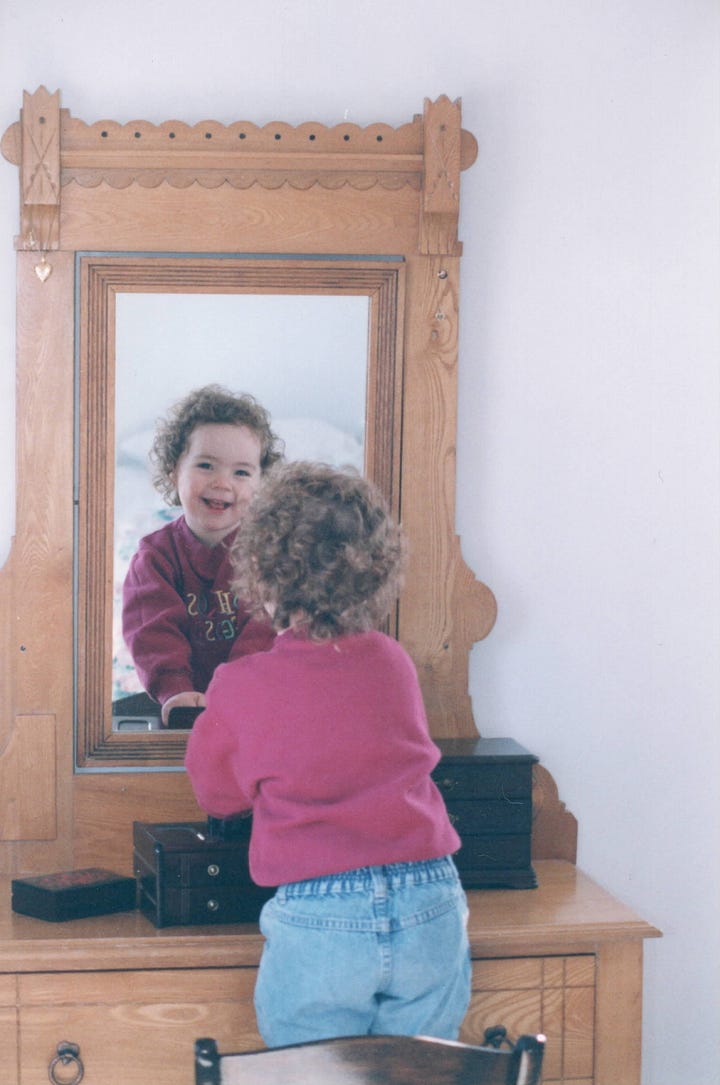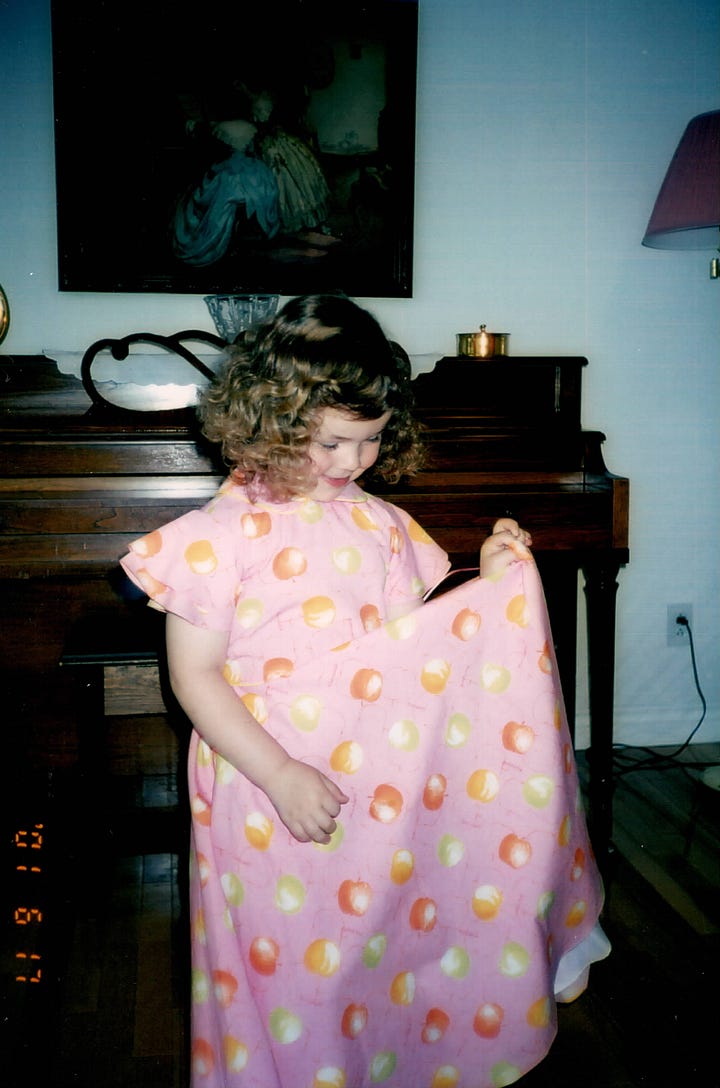I love my name.
Allana. It’s a Gaelic name with a two-fold meaning.
First and foremost, it means beautiful.
As a child, I held two subconscious beliefs about beauty:
Beautiful women are fully aware of their beauty.
Beauty is a prerequisite for love.
The first arose from a simple rationale: If a woman’s beauty is evident to everyone around her, then naturally it must be obvious to her as well.
The second was heavily influenced by popular culture.
In every romance I read or watched, the hero fell in love with his female counterpart because of her stunning appearance. Gorgeous women were praised, rescued, and treasured; ugly ones were mocked, overlooked, or disdained.
This led me to the erroneous conclusion that love and affection were contingent upon your physical appearance.
Who Calls Me Beautiful?
For most of high school, I was the awkward, nerdy know-it-all, the one the boys made fun of, not the one they gave roses to on Valentine’s Day.
But then I grew up and discovered—much to my surprise—that men considered me beautiful. When I turned 24 and suddenly started getting asked out, not just by my male friends but also by strangers, I was a little shocked, to say the least.
When did that happen?
I know I was a beautiful child.
With my ringlet curls and round, rosy face, I was often compared to the 1930s child star Shirley Temple.


And though I am not inclined to vanity, I realize that I must still be kinda cute, or I wouldn’t be getting asked out as often as I have.
But in between the adorable years of my childhood and the bloom of my young adulthood, I was an overweight, frizzy-haired pre-teen with bushy eyebrows, bad acne, and braces.
(I’ll spare you the photos from that era.)
Beauty was not something I imagined myself to possess. It had once belonged to me, but it was long since lost, and I had little hope of regaining it.
Charm is deceptive, and beauty is fleeting, but a woman who fears the Lord is to be praised. (Proverbs 31:30 NIV)
Now, when I see photos of my high-school self, I feel a surge of anger and exasperation at the realization that I was prettier than I thought.
As an adult, I recognize how my self-perception was distorted by Western culture’s warped portrayal of beauty. All those glossy, photoshopped images of toned, tanned models twisted my understanding of what was normal and healthy.
I was beautiful. I just didn’t realize it.
Self-conscious?
Yes.
Fashionable?
Oh, heck no.
But still beautiful.
At twenty-six, I am at peace with my appearance. After recovering from a ten-year battle with an eating disorder, I have learned how to nurture my body rather than punish it. I no longer despise the reflection in the mirror. Most days I rather like it.
But even now, after five years of healing, I am still surprised by my powers of attraction.
Sometimes I think, “They don’t see what I see. They don’t see the acne scars beneath my makeup. Or the way my bedhead sticks out at all angles in the morning. Or the fine lines forming beneath my eyes. If they saw me bare-faced, they would not be so attracted to me.”
To me, beauty is like a rose.

When I was on the verge of adolescence, that rose was snatched from my hand and trampled on the ground.
But God, like the gracious gardener he is, re-planted that rose, watering and pruning it day by day.
That rose is now in full bloom, but I am painfully conscious that one day it will fade, as all roses do. Its head will droop and its petals will wither until it is nothing more than a remnant of gardens past.

The fragility of my beauty frightens me.
I worry that, like my beauty, my loveability will also fade over time.
If I marry someday, will my husband still adore me when I am wrinkled and grey? Will anyone esteem me when my hands tremble and my voice warbles? What will people think of me when all those who knew me in the prime of life are a memory?
Will anyone still love me when I am no longer called “beautiful”?
It is because of these fears that I cherish the second meaning of my name best.
You see, Allana does not only mean beautiful.
It also means dear child.
Who Calls Me Beloved?
The story behind my name is as sweet as it is sad.
When I was born, my father wanted to name me “Anne Catherine” after his sisters. It was my mother who insisted on naming me “Allana Lynn.”
Which is ironic, given that I was named after my father, John Allan. The father who, since the day I was born, has neither loved nor esteemed me.
For years, I craved my father’s approval. I desired his affection and affirmation more than anything else in the world. I wept countless bitter tears because no matter what I did—no matter how well I performed in school, local music festivals, or anything else I attempted—his paternal pride was withheld from me.
I was born with a name that meant beloved, but all I felt was unwanted.
Thankfully, God knew of my fatherlessness before I was born, and I am convinced that He was the one who named me Allana.
I struggled to embrace God as a loving heavenly Father for a long time. I couldn’t wrap my mind around the idea of a father who loved me unconditionally, who did not resent me, and who was tender and compassionate toward me.
I constantly feared that God would withdraw his love and provision without explanation, turn his back on me, or grow cold, distant, and disdainful.
Because that’s all I knew of fatherhood.
But through all my fears, God patiently whispered to my heart, “I love you, Allana. I named you. You are my beautiful daughter, my dear child.”
The LORD your God is with you, the Mighty Warrior who saves. He will take great delight in you; in his love he will no longer rebuke you, but will rejoice over you with singing. (Zephaniah 3:17)
So, allow me to introduce myself . . .
Hello, my name is Allana Lynn. Child of the one true King. Heiress to the kingdom of heaven. Priestess to the Most High God.
Beautiful & Beloved.
I sought the LORD, and he answered me; he delivered me from all my fears. Those who look to him are radiant; their faces are never covered with shame. (Psalm 34:4-5)



